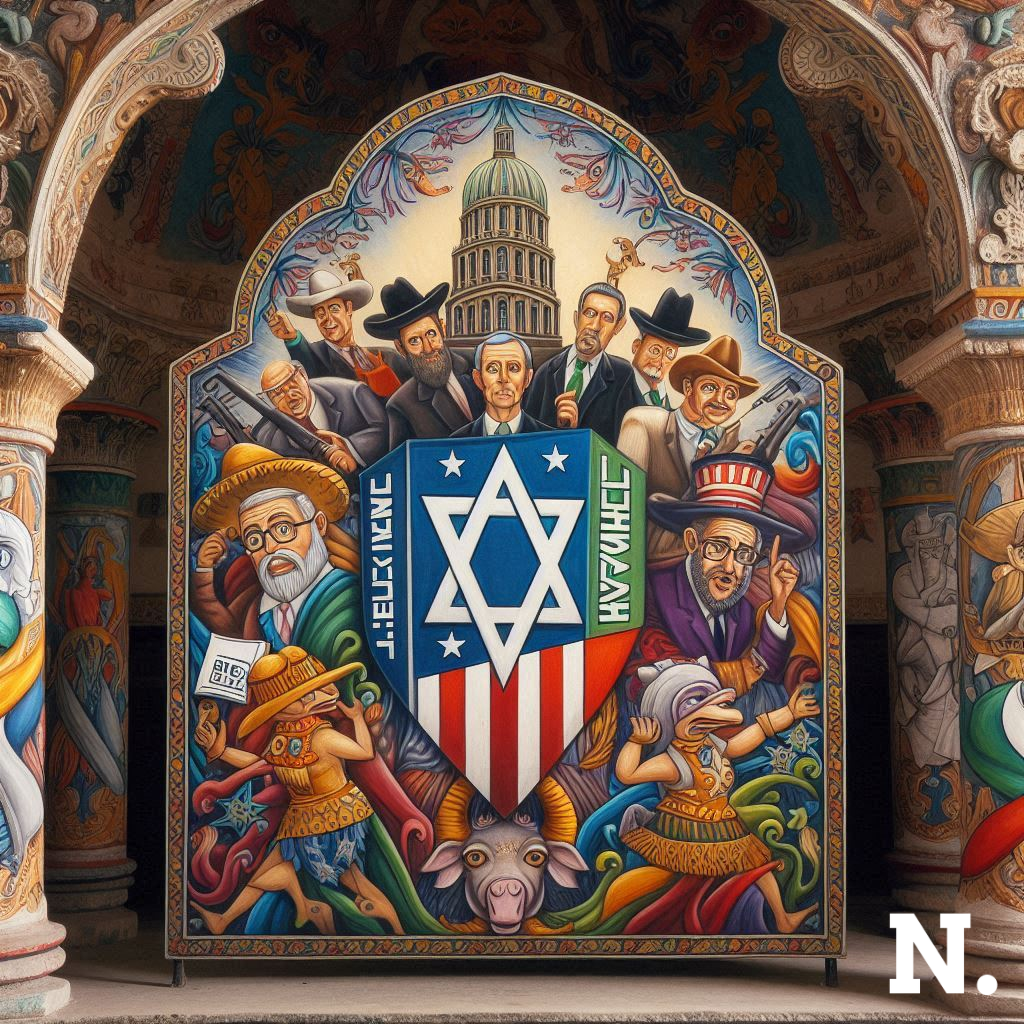On 2 June Claudia Sheinbaum made history by getting elected as the first female president of Mexico.Sheinbaum will also be Mexico’s first Jewish President. But this milestone did not cause much triumph or excitement among Mexico’s Jewish community. It was reported that Sheinbaum was elected not because of her Jewishness but her political views and priorities.
Mexico is a catholic dominated Christian country. However there is Jewish minority present in the country. The Jewish population is between 90,000 to 100,000 and more than 70% of them live in the capital, Mexico City. The community is bound together with strong relations. Jewish children mostly attend Jewish parochial schools, ranging from right-wing Orthodox to secular Zionist.
Sheinbaum’s Jewish Background
Sheinbaum’s parents are both Jewish. Her paternal grandparents had migrated from Lithuania in the 1920s. Similarly her maternal grandparents had fled from Bulgaria from the Holocaust in the 1940s. Sheinbaum characterizes her faith to be secular, and is not much active in Mexico City’s Jewish community. However she has mentioned at times about being proud of her routes, and often celebrates Jewish holidays with her family.
This helps us understand that Sheinbaum prefers keeping her faith to herself rather than using it in the public sphere or as a political tool.
Sheinbaum’s Political Divide: Morena vs. Jewish Community
Sheinbaum is highly aligned with her predecessor Lopez Obrador belonging to the same Morena political party. It is a left aligned political party aligns more towards welfare policies. However the Jewish community is regarded to be right inclined in their political views. The more a party is just a few seats behind in the Congress to achieve a special majority. Sheinbaum’s critics have reported the fear of some constitutional changes of politicizing Mexico’s Supreme Court and electing agency during her Presidential tenure.
Daniel Fainstein, Dean of Jewish Studies, Hebrica University, Mexico City has stated that the Jewish community perceived Sheinbaum in a positive light not just because of her faith but for being more educated. He states that maybe she knows the world better than her predecessor Obrador. However not all Jewish communities were the base of support for Sheinbaum. As she has not represented the Jewish community in the public sphere.
Jewish residents of Mexico City had raised concerns about Lopez Obrador’s policy and fear that Sheinbaum’s victory would mean the continuation of these policies. Few members of the Jewish community are somewhere not in line with this regime.
An Unfavorable Anti-Semitic Response
Sheinbaum has always pushed away her Jewish identity, however she has faced many anti Jewish comments from the political critics. She has been referred to as a ‘Bulgarian Jew’ while labeling her opponent Xóchitl Gálvez as the ‘only Mexican.’
Sheinbaum has referred to herself as a third-generation migrant hence is more close to Mexico rather than her grandparent’s place of origin. In June 2023, in a social media post she wrote, “I am 100% Mexican, proudly the daughter of Mexican parents.”
During the final presidential debate the Jewish card was played against Sheinbaum by her opponent and political critics. Although Sheinbaum did not engage in this and called it a provocative action.
However Professor Fainstein pointed out these antisemitic comments did not play any major role during the elections. The Mexican media did not pay any head to such comments and responses as they were a bit concerning but not very prominent. On the other hand Sheinbaum was not receiving any attacks regarding gender taking into consideration the ‘traditionally machoistic politics’ in Mexico.
Relations with Israel amid the ongoing war
The Jewish community in Mexico stands strongly behind the Jews in Israel especially following the ongoing Israel- Hamas conflict. They have always propagated the Israeli view in Mexican politics. Obrador had a relatively neutral policy towards Israel, on the contrary some Latin American countries severed ties during the early stages of the conflict.
Mexico has also announced support for South Africa’s genocide case in the International Court of Justice against Israel . Although Sheinbaum has not made any public comments related to this. But she has condemned the attacks on civilians and also stated her support for a two-state solution.
Conclusion
In conclusion, the factors influencing Mexico’s center-right Jewish community’s voting patterns are complex and multifaceted. While religion and ethnic background may have played a role, political ideology, socioeconomic status, and candidate platforms likely weighed heavily in their decision-making process. It’s important to recognize that no single factor can fully explain voting behavior. A further analysis is needed to understand the nuances of this community’s political preferences. As Mexico continues to evolve politically, exploring these dynamics can provide valuable insights into the intersection of identity, ideology, and electoral choices.





